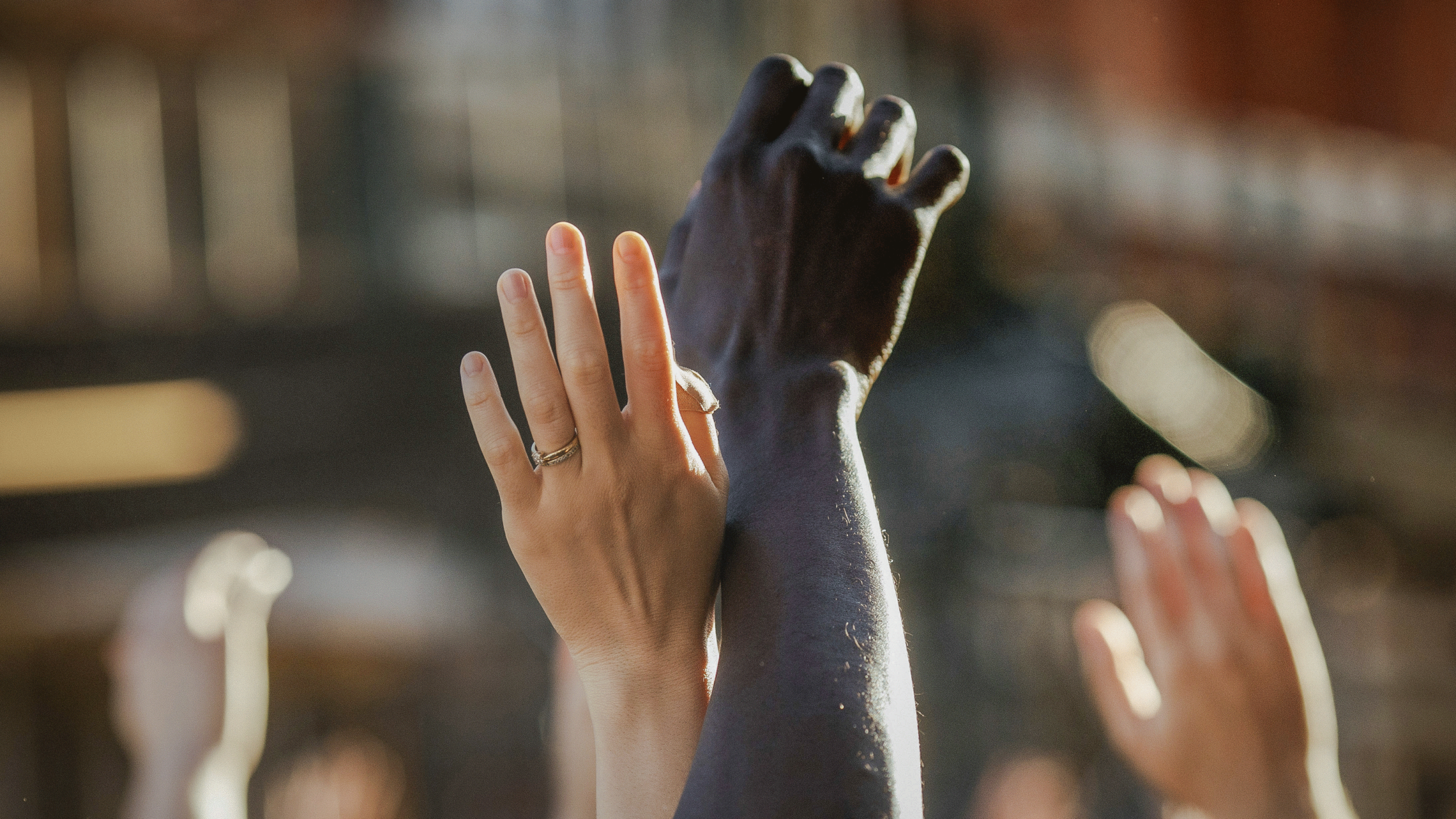The worst thing you can tell a kid is, “Don’t be scared,” according to Margee Kerr, a sociologist who specializes in the science of fear. If you tell a child she shouldn’t be scared, you’re setting the kid up to deny or repress or feel guilty about feeling fear—a normal human emotion that comes with benefits and costs, like any other.
I kept thinking about that advice while doomscrolling yesterday, as the doomscrolling was regularly broken up with exhortations from entirely well-meaning progressive types that we not be afraid, that we not freak out, that we model faith in our institutions. One ad hoc group went so far as to create a website, CalmtheFDown2020, offering ready-made social media art and tweets to distribute in service of getting folks to chillax and just vote. “The truth is, fear doesn’t propel people,” evidently. “It paralyzes them—the last thing we need before Election Day.”
Fear can paralyze people. Sure. But I’m not sure “calm down” is the right message, either. Things are bad, and there’s a significant risk they will get worse tonight, no matter the outcome of the vote.
Here in Minneapolis, buildings downtown are boarded up. There are reports that local businesses have called in special forces veterans for help in “keeping the peace” on Election Day and beyond. This combination might speak mainly to the fears of white people, but I keep thinking about the burning of the Third Precinct police station during the George Floyd protests. One of those facing charges for the arson is a far-right “boogaloo boi,” who was caught on video firing an AK-47 while shouting “Justice for Floyd!” According to the FBI, he’d traveled to Minneapolis from Texas specifically to instigate the kind of chaos that ultimately unfolded.
Then there’s the pandemic. Record numbers of people voting early tell us that millions took the pandemic seriously enough to avoid the crowds on Election Day. But millions more didn’t; the United States has shattered the record number of COVID cases reported each week. Countless people have worked tirelessly to make voting safe, and countless others have squandered their care and attention by attending mass gatherings and spreading the virus, not coincidentally in places where ill-informed, reckless Republican views on these matters have held sway. The conditions are set for a national super-spreader event.
Are you scared? Good. Because fear is an appropriate response to being terrorized, which is what the Trump administration has specialized in since he first oozed into office. To force yourself to not be scared means denying that we have been terrorized. That’s a kind of gaslighting—not as malignant the overtly cruel type practiced by Trump himself, but harmful nonetheless.
People talk about Trump running on a platform of fear but I think they mistake how his followers hear his conjuring of Cory Booker, the Suburbia Destroyer, and so on. Certainly, he is trying to invoke fear; just as certainly, anyone who could be scared of Cory Booker (CORY BOOKER!) would never admit it. Fear is a weakness if you buy into the Trumpian world view. Someone who imagines Cory Booker (CORY BOOKER) as an agent of chaos is far more likely to be thinking: “I’m concerned.” (There is a reason that the KKK dressed up as the “Concerned Citizens Council” when they needed to show their faces.) In the far-right vocabulary of tribal emotions, fear is what Trump’s leadership is there to dispel, and not feeling fear (or anything really, aside from stern disapproval, and the weepiest sort of patriotic transports) is the proof that he, and they, are right.
And what about those of us who can look at this world square in the eye and admit that we feel scared? There are, as I say, reasons to feel that way… and also, reasons not to: the millions of peaceful protesters who came out to mourn George Floyd; the Women’s March; the decency that binds up neighborhoods and the outrage that most people visibly feel, seeing tanks in their streets and protesters gassed and little kids pulled out of their mothers’ cars.
I remember that there are more of us than of them.
Please, don’t tell me to calm down. Hold my hand instead. Let’s feel what we feel and see what’s possible. The monsters are always the scariest while they’re still under the bed. Today, we will finally get to see what we’re dealing with.






